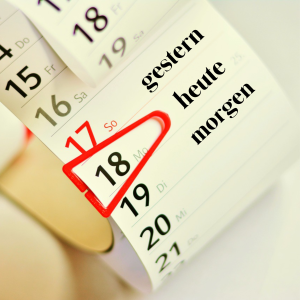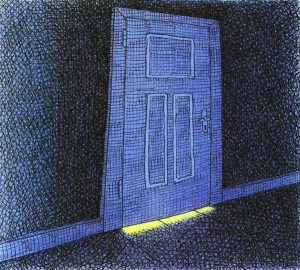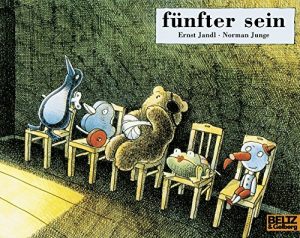Einheit 5.2 (online)

![]() Grammatik
Grammatik
Perfect Tense (1)
In Einheit 5.1, we began to discover the Perfect Tense. Here are some examples of what you saw:
Ich habe den ganzen Tag Psychologie für die Uni gelernt.
Wir haben ein paar Cocktails getrunken und haben viel getanzt.
Am Nachmittag haben wir ein bisschen Tennis gespielt und am Abend sind wir ins Kino gegangen.
Please work through the following presentation to learn more about the Perfect Tense.
![]() Marens Wochenende
Marens Wochenende
Neue Verben:
mitmachen – to participate gewinnen – to win reden – to talk
 |
|
 Pfannkuchen mit Nutella und Banane Pfannkuchen mit Nutella und Banane |
![]() Übung 1: Leseverständnis: Marens Wochenende. Beantworten Sie die Fragen.
Übung 1: Leseverständnis: Marens Wochenende. Beantworten Sie die Fragen.
![]() Übung 2: Inas Geburtstag
Übung 2: Inas Geburtstag

![]() Grammatik
Grammatik
Adverbs of time
Adverbs provide information about how, where, when, to what degree, or how often an action takes place. They modify verbs, adjectives or other adverbs. An adverb expresses things like time, frequency, quantity (viel, wenig, gar nicht), or intensity (sehr, fast, ein bisschen). In Einheit 2.6, you first learned about adverbs such as montags, abends, samstagnachmittags, etc. Click here to review the telling time presentation. Here are more frequently used adverbs (please note that these are all glossed in the printable Wortschatz for this unit):
Adverbs of time/temporal adverbs: Wann?
| Vergangenheit | Gegenwart | Zukunft |
| vorgestern gestern früher damals |
heute jetzt gerade sofort |
morgen übermorgen bald später |
Adverbs of sequence:
zuerst – Zuerst bin ich um 7 Uhr aufgestanden.
dann – Dann habe ich gefrühstückt.
danach – Danach bin ich zu Fuß zur Uni gegangen.
zuletzt – Zuletzt bin ich um 16 Uhr mit dem Bus nach Hause gefahren.
Adverbs of frequency: Wie oft?

*Achtung* Adverbs can be placed at the beginning of a sentence or after the verb:
Gestern bin ich um 8 Uhr aufgestanden. [OR] Ich bin gestern um 8 Uhr aufgestanden.
Manchmal stehe ich um 10 Uhr auf. [OR] Ich stehe manchmal um 10 Uhr auf.
![]() Übung 3: Was hat Familie Klein gestern gemacht? Wiederholen Sie “haben” und sein” hier.
Übung 3: Was hat Familie Klein gestern gemacht? Wiederholen Sie “haben” und sein” hier.
![]() Grammatik
Grammatik
Ordinal Numbers
Please work through the following presentation to learn about ordinal numbers.
![]() Übung 4: Wichtige Daten
Übung 4: Wichtige Daten
 |
 |
fünfter sein(Gedicht von Ernst Jandl, Illustrationen von Norman Junge) Lesen Sie das Gedicht hier. This is considered one of Jandl’s most famous poems and has been adapted as a picture book and play for children. We have included it here as a fun way to practice ordinal numbers.
|
![]() Wortschatz in Quizlet:
Wortschatz in Quizlet:
![]() Was wissen Sie jetzt? Klicken Sie hier für “Online Practice” 5.2.
Was wissen Sie jetzt? Klicken Sie hier für “Online Practice” 5.2.
Extra Practice (optional):
![]() German Grammar Review
German Grammar Review
If you want extra practice on the concept learned today, click the topic below:
![]() Coffee Break German
Coffee Break German
Here is a short video of people answering the question “Wann hast du Geburtstag?”.
Media Attributions
- 5.2 image © csawatzky is licensed under a CC BY-NC-SA (Attribution NonCommercial ShareAlike) license
- light-bulb © IO-Images is licensed under a Public Domain license
- book © IO-Images is licensed under a Public Domain license
- Maren © ckost is licensed under a All Rights Reserved license
- pancake-640871_1920 © Tabeajaichhalt is licensed under a Public Domain license
- star © IO-Images is licensed under a Public Domain license
- heutemorgen © csawatzky is licensed under a CC BY-NC-SA (Attribution NonCommercial ShareAlike) license
- Adverben © csawatzky is licensed under a CC BY-NC-SA (Attribution NonCommercial ShareAlike) license
- fünfter sein 2 © Ernst Jandl/Norman Junge is licensed under a All Rights Reserved license
- fünfter sein © Ernst Jandl/Norman Junge is licensed under a All Rights Reserved license
- link © IO-Images is licensed under a Public Domain license
- check mark © janjf93 adapted by Solomon Hajramezan is licensed under a Public Domain license
- play © IO-Images is licensed under a Public Domain license
past
present
future

